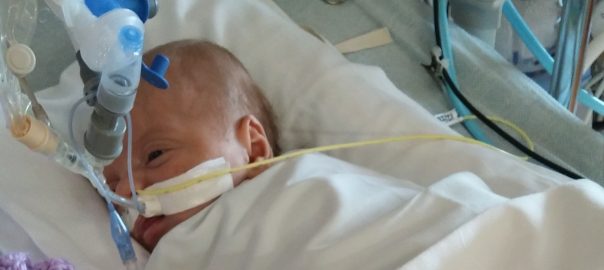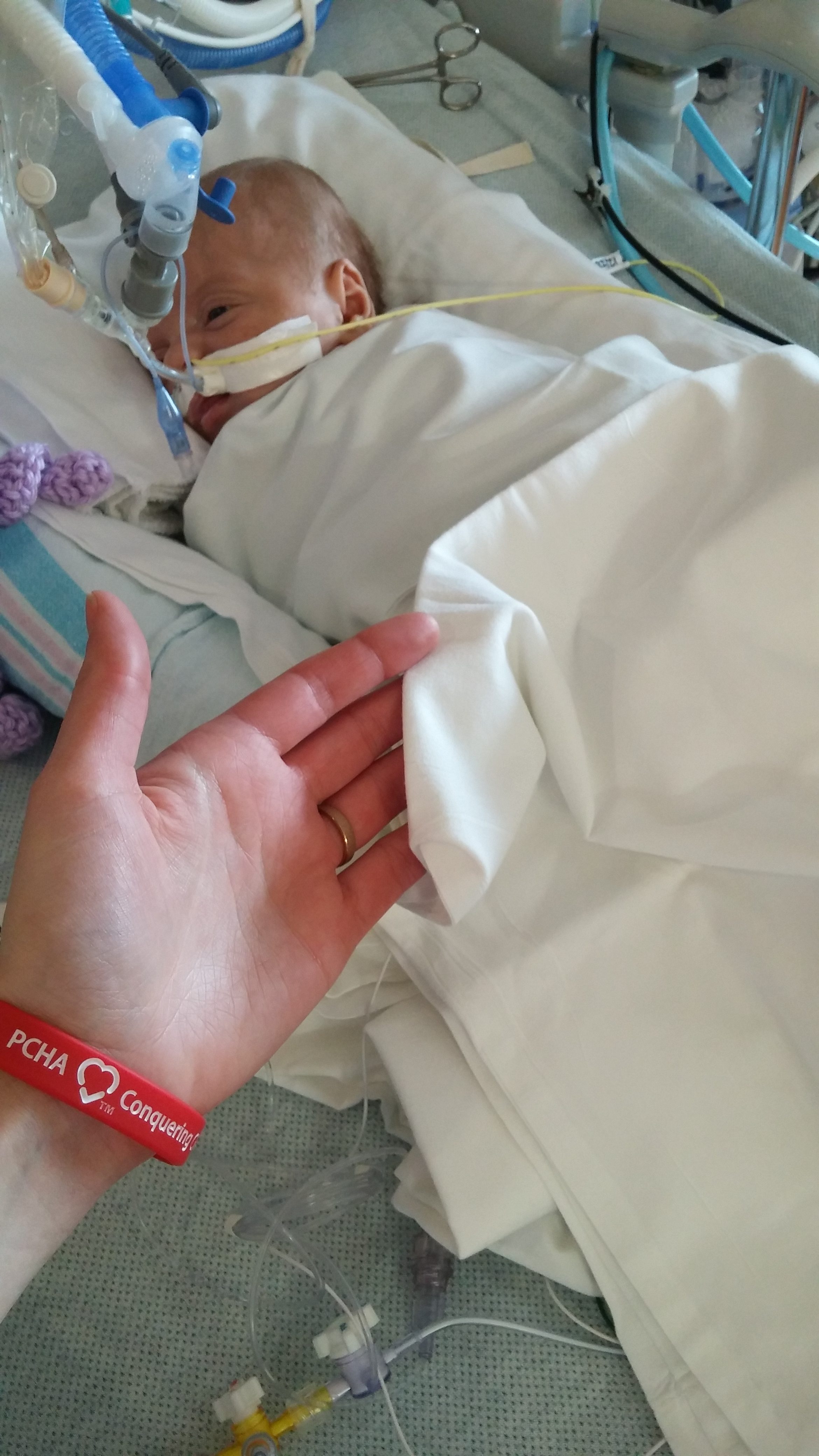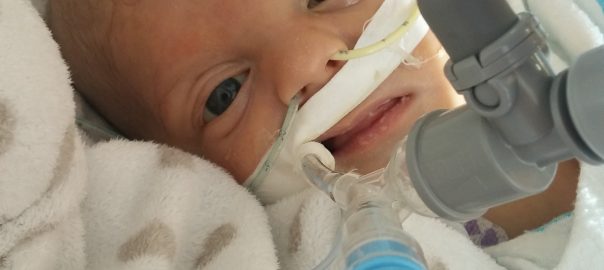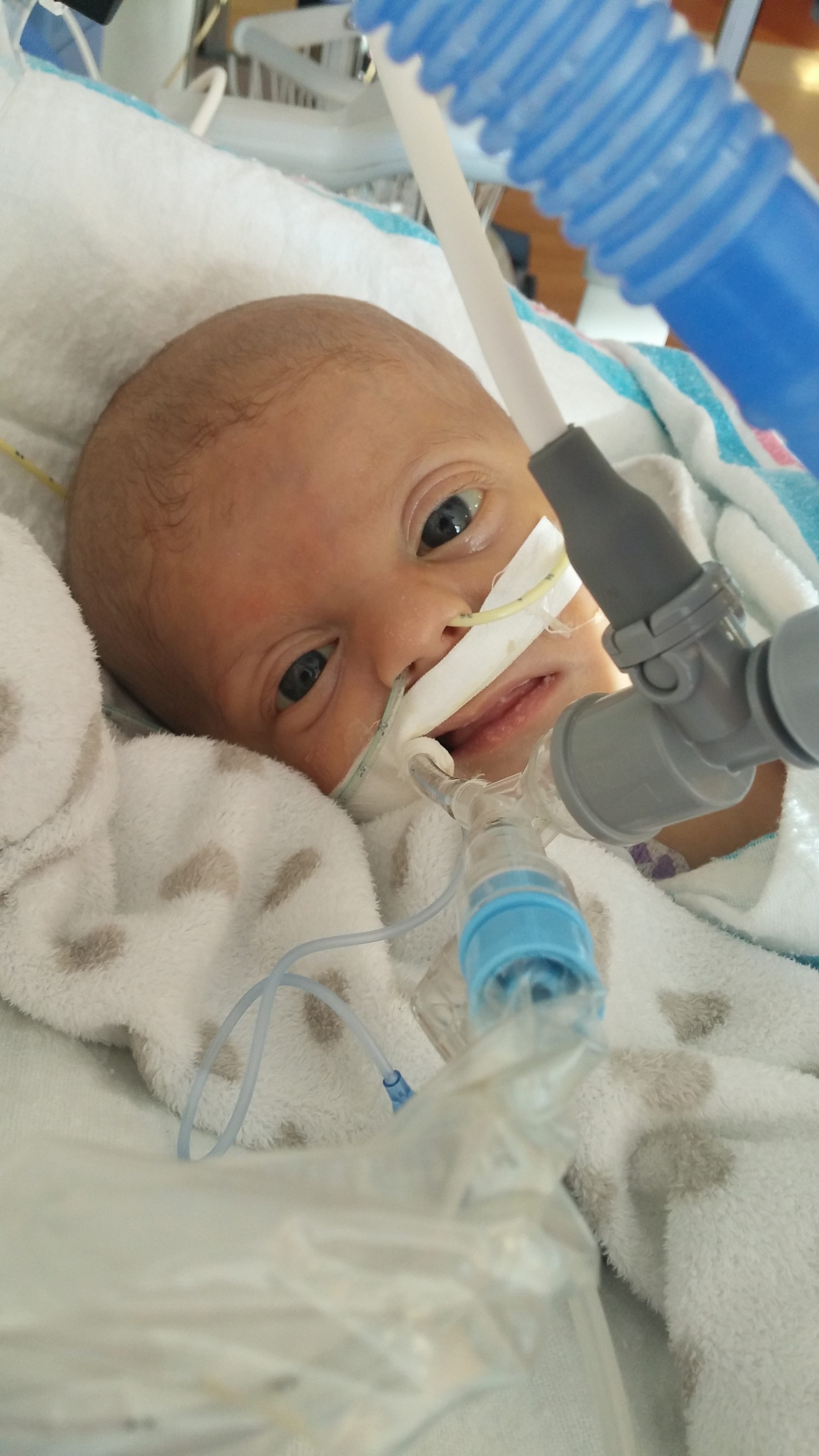Babies with congenital heart failure or birth defects can easily get fevers in the hospital. They may show 4 signs or symptoms of a fever. In children with Cardiomyopathy, it may be 1) an accelerated heart rate and trigger tachycardia, 2) high temperature, 3) sweating, and 4) lots of agitation or irritability. If you notice that your infant shows signs of a fever then address it immediately with a nurse. In my personal experience, when cardiac babies are in distress, they burn calories faster than healthy infants and if untreated, it can lead to more problems.
Is your infant hospitalized or in the intensive care unit? Here are 10 helpful suggestions from trained and experienced nurses on how to treat and reduce a fever in a baby who is diagnosed with Dilated, Hypertrophic or Restrictive Cardiomyopathy:
- Wrap baby in Pillow cases rather than blankets to reduce body heat. Use non-flannel pillow cases to cover his back or put under his body. Cotton traps heat. Do not layer the sheets. Use lightweight cloth that doesn’t absorb heat.
- Wrap baby in receiving blankets made from gauze. Do not wrap them in material made from flannel. Do not swaddle since this generates more heat and may cause further sweating.
- Cooling Blankets and Muslin Blankets. If their fever is extremely high then cooling blankets might be a good solution, otherwise, it may do more harm than good in DCM and HCM babies.
- Gas check and blood transfusions. As the parent or guardian, you should ask the following question to the cardiologist or cardiology fellow in the ICU: “Can you give my child a gas check to see if they have a low red blood cell count?” If the results indicate a low blood count then ask the RN to do a blood transfusion. What is this? It’s where the baby receives donor blood. The donor blood comes from a volunteer adult over the age of 18. In most cases the blood is given through an ivy tube. The designated amount or dosage is different for each patient and situation.
- Turn on air or lower the room temperature. When you’re at the hospital, ask the LPN or primary caregiver to reduce the heat or turn on the air conditioning in the infant’s room.
- Do not cover baby with excess clothing, caps, and socks. Keep them naked except for the diaper. Let your son or daughter try to cool their body heat down.
- Blood cultures test. Ask the nurse the following question: “Can you do a blood culture analysis on my child?” . . . Why is this important to ask? To check if there is bacterial Infection in their body or an infection caused by the plastic material from the PICC line. An infection may be causing the fever problem. Blood culture results can take 48 hours. But they can put the baby on antibiotics right away to treat it.
- Tylenol. The nurse can give a small dosage of this medicine through the feeding tube a few times a day.
- Turn off Feeds. This applies only to children who have feeding tubes.
- Sleeping. Help your newborn relax and go to sleep. Napping will help reduce their heart rate and prevent further agitation.
As a mom or dad, you are your child’s best advocate. Therefore you need to know what to do and what types of questions to ask pediatric doctors, nurses, and fellows. These helpful tips and suggestions were inspired by critical care nurses at Mott Children’s Hospital in Ann Arbor Michigan.
Do you have an idea to add to this article ? Email a heart mom blogger at Skepticalworld@gmail.com
Blog Resources:
CHD Heart Disease: 7 Ways to Help Infants Eat, Poop, and Gain Weight
CHD Awareness: What is Dilated Cardiomyopathy?
I’m Pregnant. Will my Fetus be born with a Heart Defect in Utero?




